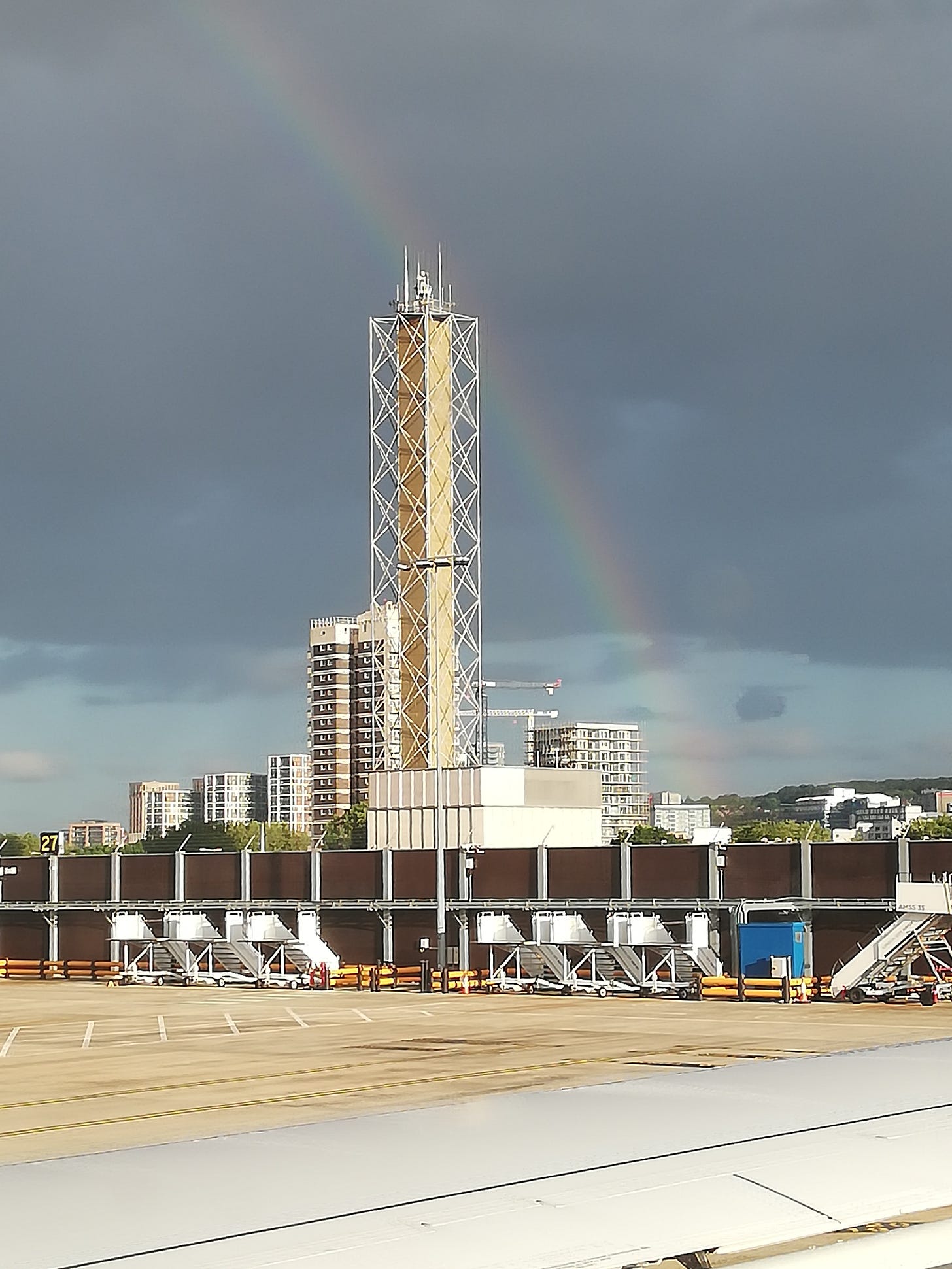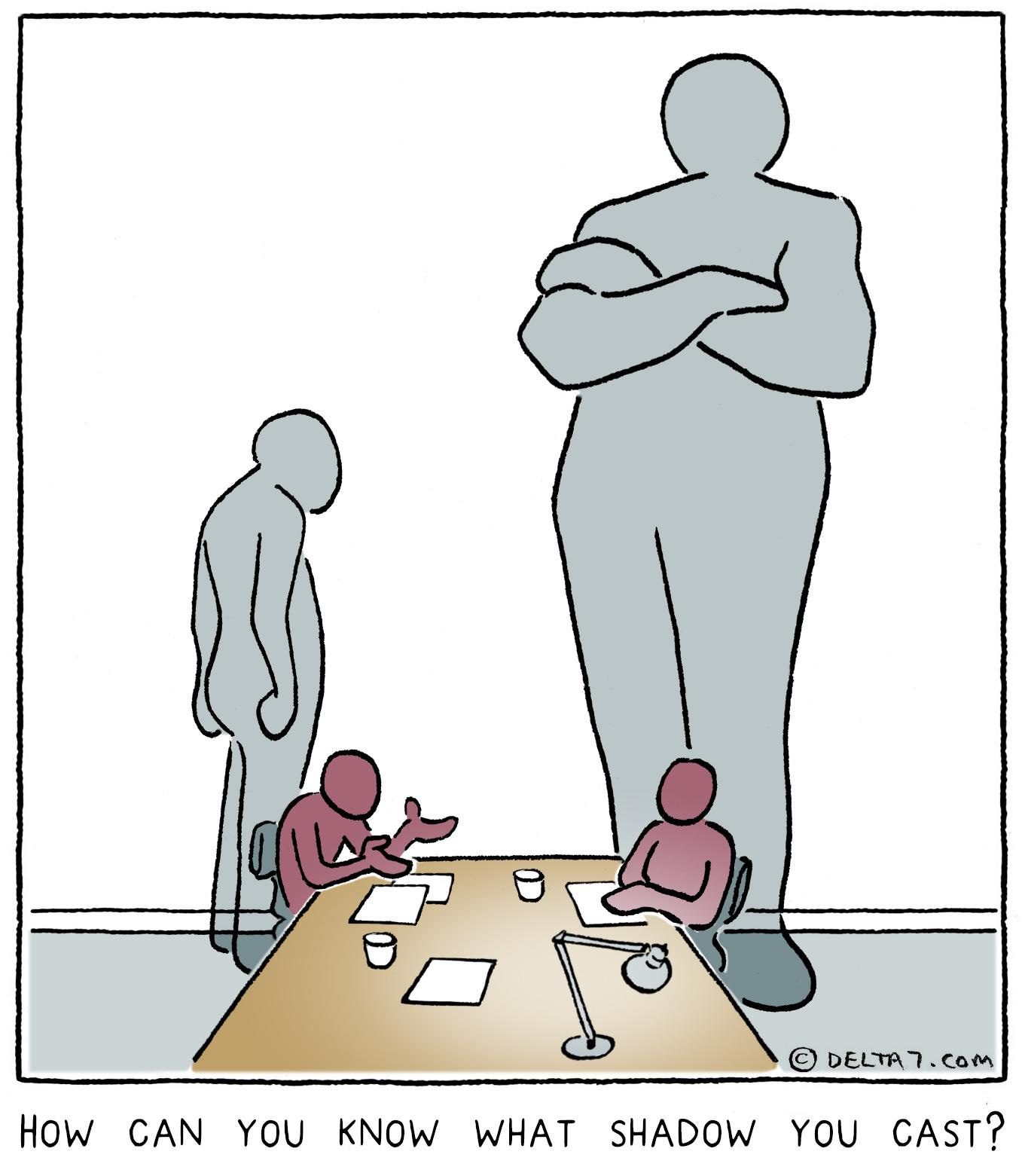Updating our 'inner tech;
Among all the noise about advancing tech, who we bring to any situation is still key
© Asha Singh 2024
Airports are always an interesting place to observe people as we really are, not organisations or social media or other contexts where we can don a costume that shows us in a favourable light. Especially getting ready for return flights when perhaps the tiredness of a hectic short weekend or a full day of work that began at silly o’clock take their toll, in conditions that are often less than ideal and we just want to get home.
I’m a frequent traveller, or better I used to be. Mad dashes across European aviation hubs were a regular form of exercise and breakfast a meal on run through bars that had been tried and tested a number of times. I even had a favourite sushi restaurant at CDG for connections that I learned to wait for over a decade of travelling back and forth regularly to France for work. I quite enjoyed my nomadic lifestyle and the moments when I could sit and watch the world go by. Not quite a Mediterranean street cafe’ but valuable nonetheless.
Somehow we’re more human when we’re sitting down to eat and drink, also if we’re alone. People make way for others, offer a place to a family where the kids are clearly desperate for nourishment, clean up the mess they leave behind. Also when there’s lots of space, many different nationalities and cultures passing through, plenty of interesting shops to engage the wealthy in yet more consumption.
Small, tight spaces seem to evoke a different kind of behaviour however. Last night I was waiting for the last flight out of a small city airport. I like them because it’s much quicker to move through them and my journey time doesn’t require frills or much comfort. Everything is purely transactional though. The staff for the most part look bored stupid and do only what they really have to so that you don’t complain. I believe check-in procedures are now carried out by airport, rather than airline, employees. For British Airways in this particular airport, they have now taken on the job of border control as well. I haven’t seen that happen anywhere else, so it must be a ‘leadership’ decision at this specific airport. In my local one, there’s a woman who insists in checking in all hand luggage so that the flight can get away on time. She likes to lecture passengers on the kind of bags they should buy so that airlines can function more smoothly. It’s become an airport sport to wind her up. She’s known as ‘Save-your-ass’. I’ve switched airlines.
Yesterday evening, the flight was full of people returning home and a few holiday-makers as it’s half-term. One member of staff asked 3 times for passengers to volunteer their hand luggage to be sent in the hold as the flight was completely full and we risked further delays to departure. One holiday-maker came forward. A couple of Italian families tried to get on the plane before anyone was invited to. A number of other well-heeled, prancing and preening co-nationals displaying bags from high-end brands feigned a total lack of understanding and then protested loudly when their bags were tagged as they showed their boarding passes and ID. It’s sadly characteristic of the city I live in, though not how business travellers usually behave. I take this flight regularly.
The cabin crew were polite but disinterested, doing their job but no more. They did start smiling however once they were collecting all our rubbish, perhaps because they knew they were almost home. I saw them walking out through the baggage claim area, positively joyful. Similarly crews working on early flights during the week are different. Maybe it had to something to do with having to show up on a Sunday.
The other day I caught a blog post on LI written by a a well-known face in aviation and aerospace who is also a former client. This person is intelligent, articulate and writes well. The post was about how tech of different kinds is empowering the future of this important economic sector. Also about how being inspired and widening our perspectives are so important. I couldn’t agree more. The most recent piece of client work I did was with a team of coders. All most of them were really interested in was writing code, having a laugh and doing the kind of work that they find stimulating. Codifying whatever needed to be improved and being recognised and rewarded for it.
The former client is so because worldviews clashed and I was dismissed. The closing conversation was not unkind, just clear. An exertion of power, despite the fact that the approach I brought resolved a problem that this leader’s team had been struggling with for some time. Most of the team came to me individually to thank me for it. A couple complained. The leader demonstrated that they liked and respected me, then chose to take the ‘that’s not how we do things around here’ line. Their prerogative.
‘Fit’ has long been a deciding factor in organisations. It’s embedded and entrenched in a digital world. In the search for real connection, we seek out reflections of ourselves in others and accept minor discrepancies if we have to. We focus on experience and skills - what is evident in the spaces between us - and far less on who people are, how they make sense of the world and how they show up, particularly in ‘tight spaces’ and under pressure. We leave that challenge to leaders to engage and develop the potential of their team members. The desire to and opportunity for that kind of development seems to be intrinsically and directly linked to cashflow.
It may well be true that we are tribal by nature. However, healthy, flourishing tribes are deeply linked to place, intergenerational and in possession of diverse skills so that the needs of the whole can be met. They are most definitely not about codifying problems and solutions so that fast computation can bring competitive advantage and higher profits. They are also not about tech that will keep ensure our future is safe from all those existential risks which have arisen from the ways we commonly think about life and how we organise and interact as a result.
It may also well be true that the tribes which have continued and dominated in time have been warring ones with the better tech to defeat their enemies. Given our exponential tech can easily wipe us all out, also without our explicit instructions or control, it seems nothing short of madness to believe that tech in general is the answer to our challenges. #Climatetch may well offer us great ways to predict climate change and tools to deal with it, but we cannot ‘defeat’ nature and the evolution of our planet - of which we are part, not separate from - with tools. We would be wiser to not have that weekend in Florence or Faro and give up the electric car in favour of local public transport. To stop buying clothes we don’t need, or give gifts that aren’t even wanted because it is some arbitrary date that has been decided as the cause for collective celebration. To insist our food is produced and distributed regeneratively, without single-use plastic, at prices that we can all afford and reward who grows the food, not the retailer giants we rely on for convenience. To learn how to be healthy through what nature provides us, through practice and ritual, community and healing, not drugs, systems and services about to collapse everywhere, or the words of an expert who has not even heard of arnica. To learn about all sorts of ways to flourish on this beautiful planet that are not about competing with others or securing a better future for ourselves. To update our ‘inner tech’ and expand our consciousness, not just our knowledge.
© Olga_Gavrilova 2021
Other people and the natural world to which we belong are not the enemy. We do not need to seek out those who think and feel and act as we do to strengthen the trenches. Or line up our boats with the prevailing winds of net zero, we are one and centralised control to keep us safe from harm. Net zero is BIG business, BIG profits, BIG returns, powered by energy that is questionably anything but green. There are serious limitations to producing the quantity of electricity needed to continue GDP - a well-outdated economic measure - at current rates. There are serious and well-documented limitations and risks of AI - which has already vastly accelerated all the dynamics described above and many more, whatever the benefits individual AIs offer in multiple sectors.
The illusion of unlimited economic growth through short-term financial gain is the problem, the devouring organism of energy production and distribution that is destroying the biosphere we depend on, our closeness to irreversible tipping points, the ghost of Narcissus pulling the strings in many of our interactions and decisions. All arising from a series of beliefs and values enshrined in religions and cultures that shape our very thinking, largely below the surface of everyday life. A deeply-held sense of right(eous)ness that is being eroded on all fronts.
Regeneration needs no business case or bandwagon on which to hitch a ride. We have what we need around us if we care to look for and nurture it. Diversity is not a tick-box agenda about skin colour, sexual preference or gender identification. It’s what sustains life, not virtual reality in every sense of the word. Who we bring to the context in which we find ourselves is everything.
There are many great practitioners to learn from in a whole variety of fields.
It’s up to you.
Thank you for reading.






